As REALTORS®, we monitor legislation impacting affordability and private property rights, including property taxes, fair housing, building codes, zoning, transfer taxes, rent control and more! We’ll keep you updated on the latest issues affecting your investment.
Rent Control
What is Rent Control?
Rent control limits the increase in rental rates. Typically, local governments use rent control measures when there is a limited supply of rental housing. Rent control or rent stabilization measures put in place by local governments are enabled by state legislation. Generally, rent control and rent stabilization are interchangeable terms, although technically, rent control does not allow for any increase in rental rates, whereas rent stabilization allows for an annual percentage increase (typically 5 to 7%) along with a consumer price index (CPI) adjustment.
How does Rent Control impact my private property rights?
Rent control has been banned in Illinois since 1997. If the existing preemption law was overturned, local governments would have the option to use rent control measures to limit rental rates for both residential and commercial leases. The inability to capture fair market values disrupts the real estate market and severely limits an owner’s ability to establish rents. It has been argued that this type of governmental intervention is a violation of private property rights. Furthermore, under rent control, small landlords are hit particularly hard, as their capital budgets for maintenance and improvements are constrained by the inability to charge fair market rental rates.
Rent control is a blanket policy that does not solve the problem of housing affordability or housing availability. Typically, rent control is considered during real estate cycles of housing shortages without the consideration of long-term solutions. A housing shortage is a societal problem that is caused by a lack of housing supply, particularly at a certain price point. Other constraints within a city have an impact on building homes, such as inclusionary zoning policies, costs of labor and materials, permitting delays and more. When costs prevent housing development to be built, problems arise because demand is high while supply has been restricted.
Rent control does not target the most vulnerable populations in need of housing support but rather limits all rental rates in a city or jurisdiction where rental controls are implemented, regardless of tenant need. As a result, tenants that are better connected to resources end up in rent-controlled units while the most vulnerable remain at risk of displacement.
Rent control would limit mobility in the city of Chicago, where there is plenty of housing, just not in neighborhoods that are the most desirable. A lack of investment throughout the entire city has left some neighborhoods with fewer amenities than others. This inequality coupled with rent control would significantly perpetuate the inequalities of the city of Chicago. Considering the vast amount of opportunities to increase housing supply on the south and west sides, rent control would completely derail any efforts by the city to attract residents to more affordable neighborhoods.
ADDITIONAL RESOURCES
Property Tax Appeals
What are property taxes?
Your property taxes are the taxes that you will pay on your home based on its value, including the land. Throughout Cook County, property taxes are determined by the Assessor and the Assessor’s office, who calculate the amount based on current market value, and properties are reassessed every three years.
Why should I appeal my property tax bill?
It’s possible the characteristics of your home are listed incorrectly on your assessment, or you believe your home’s value is more, or less, than what it was assessed in your taxes. In these cases, you should file a property tax appeal. This must be done within 30 days of assessments being mailed to your township, and it’s important to have information such as square footage, comparable properties and more available when filing. Find out more about how to complete the filing process here.
Real Estate Transfer Tax
New Transfer Tax Increase Proposal
A proposed Real Estate Transfer Tax resolution, commonly referred to as Bring Chicago Home, was approved by Chicago City Council in 2023.
The proposed resolution would create a tiered, marginal structure on these taxes. This means:
- Anything up to $1 million would be taxed 0.6%
- Sales between $1 million and $1.5 million would be taxed 2% on the amount over $1 million
- Sales over $1.5 million would be taxed 3% on the amount over the $1.5 million mark
The taxes from this proposal would go towards fighting homelessness in the city of Chicago.
The resolution will be included on the March 2024 primary ballot to be voted on by Chicago residents.
What is the Real Estate Transfer Tax?
Chicago currently has a law called the Real Estate Transfer Tax (RETT). This is a tax imposed when titled real estate property is transferred within the city of Chicago.
As of 2019, the rate of this tax is $0.75 per $500 of the transfer price – or fraction thereof – of the property. In 2008, an additional supplemental tax of $1.50 per $500 was added to the RETT, making the total tax $2.25 per $500. Funding collected from this supplemental tax supports the Chicago Transit Authority (CTA), where the buyer pays the supplemental rate of $1.50 per $500, and the seller pays the rate of $0.75 per $500.
How does the transfer tax impact my private property rights?
Historically, legislators have called for an increase in the transfer tax to fill gaps in their budgets or increase revenue.
Traditionally, REALTORS® oppose any increases in real estate-related taxes and/or fees that will increase the cost of a transaction.
Affordable Requirements Ordinance
What is the Affordable Requirements Ordinance (ARO)?
The City of Chicago’s Affordable Requirements Ordinance requires residential developments that receive city financial assistance including upzoning or involve city-owned land to provide a percentage of units at affordable prices. The ordinance applies to residential developments of 10 or more units and requires that developers provide 10 percent of their units at affordable prices, based on the Area Median Income (AMI). The ordinance also applies if:
- A zoning change is granted that increases project density or allows a residential use not previously allowed
- The development is a “planned development” within the downtown area
Since the 2015 revisions, the Department of Housing has unveiled a dashboard to provide transparency for both the ARO units built and how they are occupied, which can be viewed here.
How does the ARO impact my private property rights?
We remain committed to ensuring Chicago is an environment where private property rights are important.
Traditionally, REALTORS® oppose any increases in real estate-related taxes and/or fees that will increase the cost of a transaction. When costs prevent housing developments to be built, problems arise because demand is high while supply has been restricted.
Accessory Dwelling Unit/Accessory Conversion Unit
What is an Accessory Dwelling Unit/Accessory Conversion Unit?
An Accessory Dwelling Unit (ADU) is a legal and regulatory term for a secondary house or apartment that shares the building lot of a larger, primary house. An ADU can be a tiny house in the backyard, a coach house, a granny flat, a build-out space in the basement of a multi-unit or space above a garage.
In 1957, ADUs were deemed illegal in Chicago, but on December 16, 2020, ADUs were made legal. In Chicago, ADUs will be referred to as Accessory Conversion Units (ACUs). The ordinance was effective starting in December 2020, but the Department of Buildings did not issue permits until May 2021.
The current ordinance allows for ACUs in pilot zones. The ordinance does not allow building throughout Chicago under the authority of this ordinance; however, an ACU may be pursued as a zoning variance in areas outside of the pilot zones.
How does the ADU ordinance impact my private property rights?
Accessory Dwelling Units help increase the housing supply, and REALTORS® firmly support policies that encourage building and construction.
For eligibility & requirements, click here.
Appraisals
Many communities feel that appraisals have devalued their neighborhoods. Although appraisers are a licensed profession, we want to provide you a means to tell your story (or stories) regarding appraisals you feel are unjust on the basis of race, gender, geography, etc. We’re gathering your stories so we can begin to assess how best to drive attention to the issue.
Please note: This form does NOT take the place of a formal complaint and any story submitted is for informational purposes only. After submitting your story, if you would like to file a formal complaint, please contact the Department of Housing and Urban Development (HUD).

